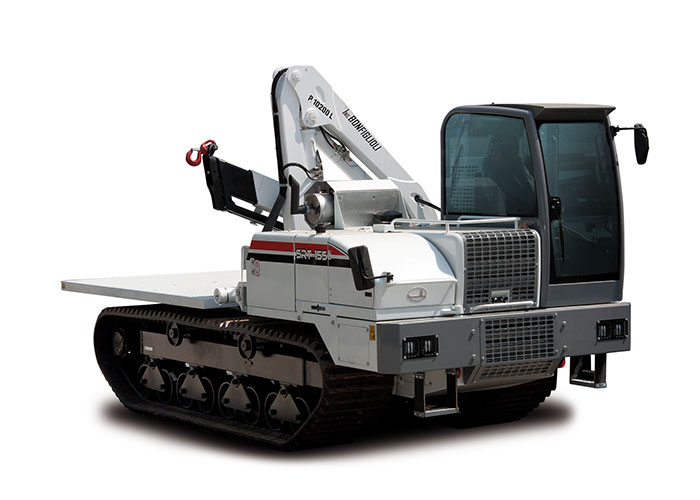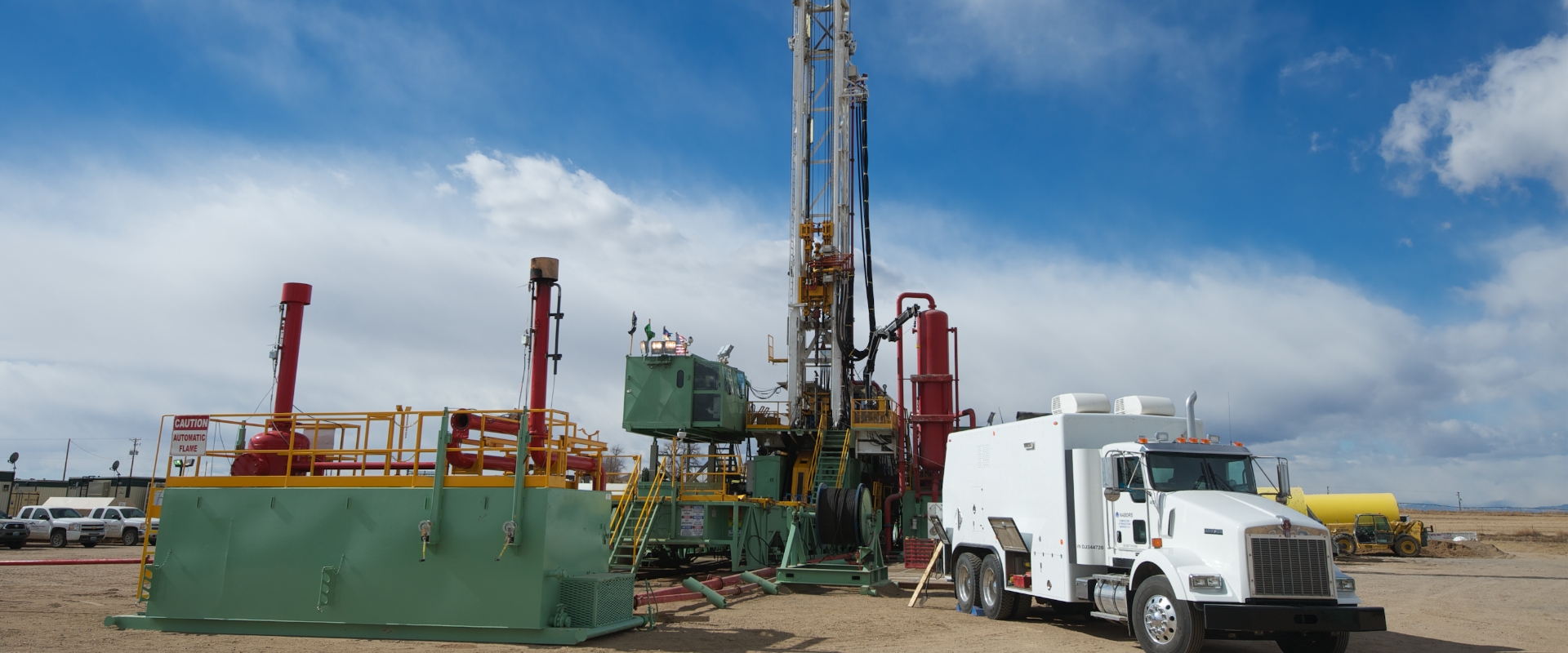Superior Rentals midland: local expertise for field operations
Wiki Article
A Comprehensive Overview to the Different Types of Oil Field Equipment and Pipeline Equipment Available
The oil and gas industry depends heavily on specialized tools for reliable extraction and transportation. Different types of equipment, from drilling rigs to tank, play essential roles in this complicated process. Each tool serves distinctive functions that contribute to total operational success. Recognizing these components is crucial for any individual entailed in the industry. As the sector develops, so as well do the technologies that support it. What innovations are on the horizon?
Drilling Rigs: The Foundation of Oil Exploration
Drilling rigs act as the crucial machinery in the domain name of oil expedition, enabling firms to gain access to hydrocarbon gets buried deep beneath the Planet's surface. These rigs can be found in different kinds, including land rigs, offshore rigs, and mobile devices, each developed to run in particular environments. Furnished with advanced modern technology, drilling rigs can permeate geological developments with precision, making certain effective source extraction. The architectural honesty and operational abilities of these rigs are crucial, as they need to withstand extreme problems and significant pressures. The option of a boring gear influences the overall project expense and timeline, making it a crucial factor to consider for oil firms looking for to maximize their exploration efforts and take full advantage of efficiency in their procedures.Pumps: Crucial for Liquid Movement
In the oil extraction procedure, the role of pumps is significant, facilitating the movement of fluids throughout various stages of production. Pumps are essential for carrying unrefined oil, water, and other liquids from underground reservoirs to the surface and afterwards via pipes to refineries. They can be found in numerous kinds, consisting of centrifugal, positive displacement, and submersible pumps, each offering details functions based on the fluid characteristics and functional needs. Centrifugal pumps are frequently utilized for their efficiency in high-flow applications, while positive variation pumps stand out in dealing with viscous liquids. The option of pump effects overall performance, functional security, and maintenance costs. Correct choice and maintenance of pumps are essential for enhancing production and decreasing downtime in oil field operations.Shutoffs: Controlling Circulation and Pressure

Shutoffs play a vital role in handling the circulation and stress of fluids within oil fields and pipelines. Different kinds of valves serve unique applications, each created to fulfill particular features basic for reliable procedure - Superior Oilfield pipeline equipment rentals. Comprehending the attributes and uses these valves is vital for enhancing system efficiency and safety and security
Kinds of Valves
Crucial parts in oil area operations, shutoffs play a critical function in controlling the circulation and stress of liquids within pipes and tools. Numerous kinds of shutoffs are used to satisfy the diverse needs of oil and gas production. Usual kinds consist of entrance valves, which provide a straight-line circulation and marginal stress decrease; globe shutoffs, recognized for their strangling abilities; and ball shutoffs, acknowledged for their quick on/off control. Additionally, check shutoffs stop backflow, while butterfly valves supply a light-weight service for regulating flow. Each shutoff type is designed with details products and configurations to withstand the rough problems typically found in oil areas, making sure reliability and performance in operations. Understanding these kinds is vital for effective system monitoring.Valve Applications and Functions
While numerous sorts of valves offer unique purposes, their key applications revolve around regulating flow and stress within oil and gas systems. Valves such as entrance, globe, and sphere shutoffs control liquid motion, making certain peak performance and safety. Entrance shutoffs are typically made use of for on/off control, offering marginal flow resistance. Globe shutoffs, on the other hand, offer specific flow guideline, making them ideal for throttling applications. Sphere shutoffs are favored for their quick procedure and limited sealing abilities. On top of that, pressure relief valves are critical for avoiding system overpressure, guarding equipment honesty. Overall, the proper option and application of shutoffs enhance operational effectiveness, making certain the dependable transport of oil and gas with pipes and handling centers.Compressors: Enhancing Gas Transportation
Compressors play an essential function in the effective transportation of all-natural gas, making certain that it relocates efficiently via pipes over cross countries. These tools raise the stress of gas, permitting it to get over rubbing and altitude adjustments within the pipeline system. In addition, compressors promote the harmonizing of supply and need, fitting changes in usage and manufacturing prices. Numerous kinds of compressors are utilized in the market, including centrifugal, reciprocating, and rotary screw compressors, each offering distinctive benefits based upon the operational requirements. Regular upkeep of these compressors is important to take full advantage of effectiveness and reduce downtime, ultimately adding to a reliable gas transport network. Their important function underscores the relevance of compressors in the general oil and gas facilities.Storage Tanks: Safe and Efficient Liquid Management
Effective transportation of gas counts on different sustaining systems, among which is the appropriate monitoring of storage containers. These storage tanks play an important duty in safely containing liquids, ensuring that functional efficiency is preserved while minimizing ecological risks. Built from durable materials, they are made to stand up to high pressures and destructive components. Correctly sized and purposefully located, tank facilitate the smooth flow of gas and other fluids, stopping bottlenecks in supply chains. Regular upkeep and surveillance are crucial to detect leaks or architectural concerns, promoting security and conformity with their website governing standards. Eventually, the efficient monitoring of tank is vital for the total honesty and reliability of the oil and gas industry's fluid handling systems.
Pipeline Solutions: Facilities for Transport
Pipeline systems act as the backbone of the oil and gas industry, helping with the effective transportation of hydrocarbons over huge ranges. These systems contain numerous components, consisting of pipes, shutoffs, pumps, and compressors, all meticulously developed to guarantee seamless flow. The materials used in pipeline construction, typically steel or high-density polyethylene, are chosen for durability and resistance to corrosion. Pipeline networks can span across land and water, connecting production sites to refineries and warehouse. In addition, progressed innovation allows real-time monitoring of flow prices and pressure levels, boosting functional effectiveness. The tactical positioning of these pipelines reduces ecological influence while making the most of source access, consequently playing a vital role in conference energy needs internationally.Safety Equipment: Ensuring Employee and Environmental Management
The procedure of pipeline systems, while important for energy transport, also offers significant safety and security difficulties for employees and the atmosphere. Safety and security devices plays a significant function in mitigating these dangers. Personal protective tools (PPE) such as safety helmets, handwear covers, and non-slip footwear safeguards workers from physical threats. Furthermore, gas discovery systems keep track of for leakages, ensuring that dangerous substances do not position a hazard to personnel or the bordering ecological community. Emergency shutdown systems are essential for swiftly halting procedures during a dilemma, protecting against potential catastrophes. Spill control products, consisting of absorbents and barriers, are fundamental for lessening ecological influence. Overall, buying all-inclusive safety and security tools is crucial for preserving functional stability and shielding both employees and the setting in the oil and gas sector.
Frequently Asked Concerns
Just how Do I Select the Right Oil Field Equipment for My Task?
Choosing the ideal oil area devices entails evaluating job specifications, budget plan restraints, and operational demands. Take into consideration factors such as devices integrity, compatibility with existing systems, and the provider's track record to assure peak performance and security.What Are the Upkeep Needs for Oil Field Equipment?
Maintenance requirements for oil field devices consist of normal inspections, lubrication, and timely repair services. Operators needs to additionally click now adhere to producer guidelines, screen efficiency metrics, and assurance conformity with safety and security laws to enhance investigate this site longevity and efficiency.
How Can I Make Sure Conformity With Environmental Regulations?
To assure conformity with environmental laws, companies need to perform regular audits, carry out ideal practices, spend in training, keep proper paperwork, and remain updated on regulations (Superior Rentals reviews). Cooperation with ecological agencies can also improve adherence to guidelinesWhat Is the Ordinary Life-span of Pipeline Equipment?
The average lifespan of pipeline devices normally varies from 20 to half a century, relying on factors such as material quality, environmental conditions, and maintenance methods. Routine examinations can substantially affect long life and functional performance.Just how Do I Securely Move Oil Field Equipment to Remote Locations?
Transporting oil area tools to remote areas needs cautious planning, including course analysis, safeguarding licenses, utilizing suitable cars, and guaranteeing safety methods are adhered to. Correct training and communication among staffs are essential for effective transport.Report this wiki page